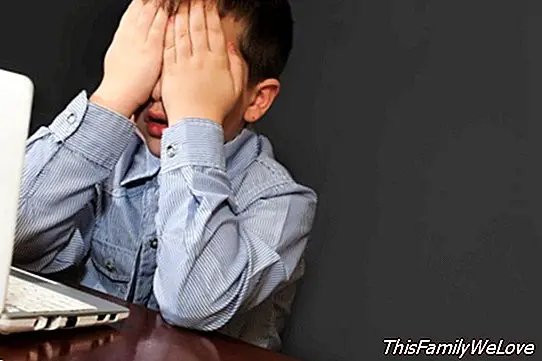The child safety codes on the Internet of the National Police

Lback to school It is a return to routine, to good habits and, also, to reminders of Internet security. This is remembered by the agents of the Social Networks Group of the National Police, who have prepared a list for the purpose of the holidays.a safe return of our children's holidays ", as they themselves explain.
In this way, they have developed a "check list", that is, a checklist so that parents are able to identify those actions that have to be done in relation to the child safety on the Internet, social networks, mobile and other electronic devices.
Some recommendations are aimed at the proper use of images and information that is shared on the Internet, others to the prevention of addictions in the digital world and others to parental accompaniment in learning and good use of technology. Do not wait any longer and check if you are ready for a safe return to school in terms of new technologies and the internet.
Security checks for minors
These are the checks that, according to the specialists of the National Police, parents must do to make sure that their children start the new course "in the best safety conditions and privacy in the use of Internet, social networks, smartphones or other gadgets ".
1. Check what photos have been uploaded to social networks and if they could be harmful to your image, now or in the future, or bother any of the protagonists. In case of doubt, it is best to avoid problems and delete that photo
2. Ask them to check what photos or comments referred to other people have uploaded to their profiles or to those of your contacts, and ask them to have their authorization to share them. Ensure the privacy and good image of others, ALWAYS. Explain to your children how serious cyberbullying is, do not do it or consent to others
3. Check what photos or videos have been made with the mobile and saved on that device, or others, and / or shared through WhatsApp. Explain the importance of protecting their image and privacy and ALWAYS respect the rest to avoid problems at all
4. Explain and rationalize with them the proper use of electronic devices, avoid hyperconnection to mobile phones and the Internet and set guidelines regarding time, occasion and cost. Help your children avoid digital addictions
5. Explain to your child that both in social networks and in Whatsapp or network games should be made a rational use of them. That they know how to say NO to add strangers in their personal spaces as well as to end an annoying cyber-relationship or to leave an occasional summer group created in WhatsApp
6. Check with your children that they have their profiles well configured, closed to your personal circle, and who have left the session in email and social networks if they have shared the device. Also remember basic security issues such as installing a mobile access code, changing passwords relatively frequently and installing an antivirus.
7. If your children are still small, you should accompany them from the beginning in the proper use of technology and they must understand that you have access to their devices, to give them more autonomy as they grow. Install programs, filters or apps for parental management and timely security. That they understand that in case of necessity they can resort to you, to the professors and, if it is serious, to us
8. Explain to your children the importance of protecting your privacy and image, In addition to avoiding details that put your safety or that of your belongings at risk (presuming certain assets can be a temptation or give bad ideas to friends of others). Remember also the minimum ages of access to online platforms
9. Explain to your children the importance of know how to buy or consume technology well, both the devices and terminals and the games, files or programs. That distinguish their reliability and legality, be aware of the possible costs, etc.
10. In the return to normality, it is important to fix with them in writing Good standards (safe, private, respectful) use of your mobile, tablet, computer or device connected to the Internet, to agree between all when you go to buy or release a new gadget for the child.
Contract of use
In addition, the Social Networks Group reminds parents of an interesting initiative launched by the National Police: the contract to use technology with the little ones. This paper, which must be signed by parents and children after having carefully read and agreed on all the points, is aimed at the responsible and safe use of technologies.
The contract is available in this link, and includes some interesting points such as the necessary start-up as "the new user assumes that, until he is a little older, his parents or trusted elders will always know the access codes and passwords of your new gadget and mail, pages, games, photos * ". Interesting, right?
Angela R. Bonachera




